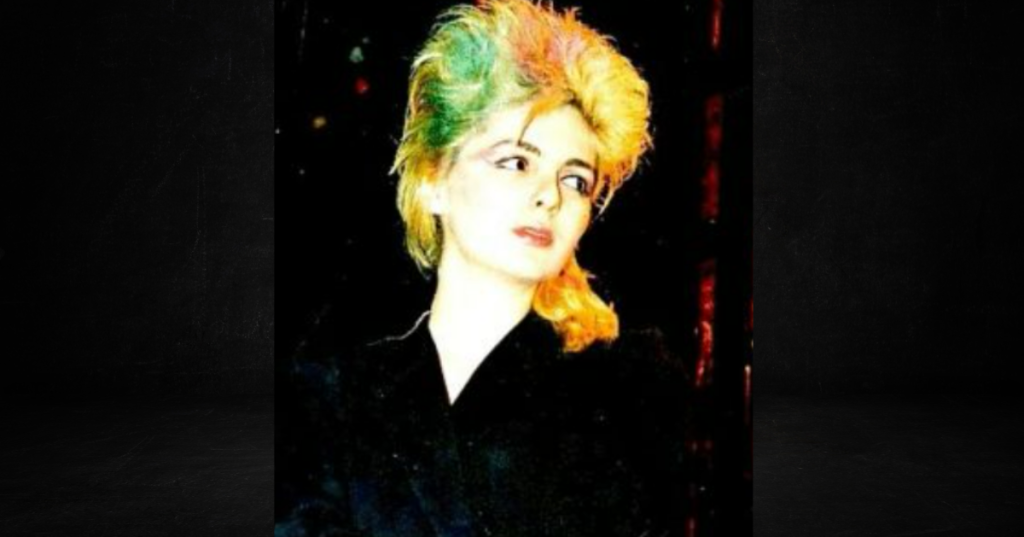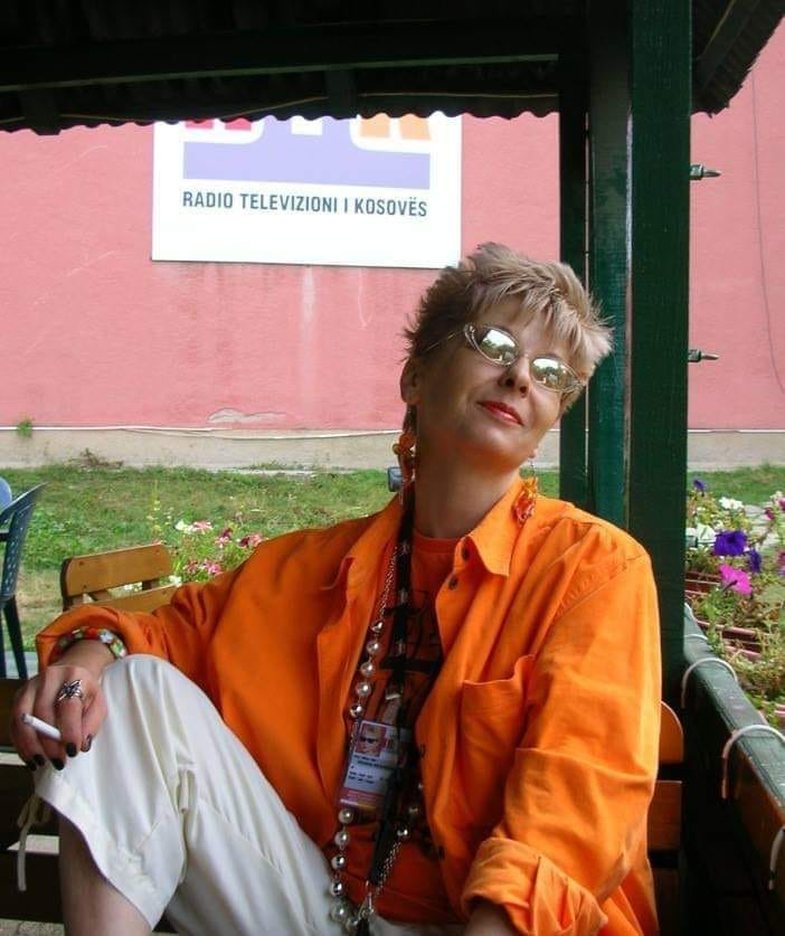Revolutionary, bold, successful, and stylish—these words perfectly encapsulate the essence of Violeta Rexhepagic, a multifaceted artist as a composer, singer, and journalist. She fearlessly transcended societal barriers and shattered taboos that surpassed conventional human norms. Throughout her entire life, Violeta wholeheartedly dedicated herself to pursuing her deepest desires and dreams, propelling her to become one of the most esteemed and accomplished individuals in the country.
She was a woman who harbored a deep love for art and fearlessly expressed it in a manner that was both unique and daring for her time.
Violeta emerged as a catalyst for the feminist revolution, embodying the essence of a modern-day icon and serving as a role model for girls and women alike.
Regarded by her colleagues and friends as a visionary, Violeta’s avant-garde approach surpassed the confines of her native Kosovo, as her unwavering courage to push boundaries and experiment knew no borders.

Violeta’s close friend, the actress Melihate Qena, reflects on her as a resolute woman who fearlessly navigated a path filled with numerous obstacles. According to Qena, daring to be different during the time Violeta lived was an arduous endeavor.
“Even in her youth, Violeta brought forth a fresh artistic spirit that would ultimately yield tremendous success in Albanian art,” Qena remarked, emphasizing the transformative impact of Violeta’s contributions.
Violeta Rexhepagic emerged as the vanguard of the 1980s rock scene in Kosovo, solidifying her reputation as the most avant-garde musician of the era. With her vibrant hairstyles and daring fashion choices, she became an iconic figure. Not only did Violeta compose and perform her music, but she also penned her own lyrics and meticulously curated her stage presence.
It was through her captivating performances with the contemporary music group “Viviene” around 1984 that she garnered recognition from the Albanian public at large. Additionally, Violeta had the honor of representing Kosovo twice in the ex-Yugoslavian selection process for the renowned “Eurovision Song” competition, further elevating her status in the music industry.
However, Violeta’s legacy extends beyond her artistic endeavors. She is also renowned and remembered for her groundbreaking work as the first female reporter to provide coverage from war-torn regions.
Following the entry of Serbian forces into Radio and Television of Pristina, Violeta found herself unemployed.
Nevertheless, her proficiency in foreign languages became a valuable asset, attracting invitations from foreign news agencies.
For a period of time, Violeta worked as a war correspondent for Sky News, playing a vital role in informing the world about various events, tragedies, and human rights violations affecting the Albanian people.
She fearlessly reported on the atrocities, including torture, imprisonment, and the poisoning of students. Additionally, she provided coverage of the revolution that led to the overthrow of Nicolae Ceausescu’s regime in Romania. Violeta’s dedication to journalism took her to the frontlines of significant conflicts, including the First Persian Gulf War, the war in Croatia, and the early stages of the conflict in Bosnia and Herzegovina.
“A woman with a big heart, displaying profound respect for people. She has traversed a remarkable journey in life, yet regrettably, she never receives the recognition she truly deserves. Let us not forget that she was the pioneer reporter of the Albanian war, reporting on the fall of Ceausescu and even securing an interview with Saddam Hussein. Her repertoire includes insightful reports on the wars in the former Yugoslavia, the overthrow of communism in Albania, but unfortunately, only a few truly grasp her exceptional virtues, be it in art or journalism,” reveals her friend, Agron Shala.
In 1995, Violeta endured a devastating traffic accident that left her immobile for over two and a half years, unable to move her limbs. Consequently, she couldn’t actively report during the war in Kosovo, despite being present in Pristina throughout the conflict. Following the war, Violeta made a courageous comeback and resumed her work at Radio Television of Kosovo, where she continued to contribute until her passing in 2020.

Her unwavering determination and resilience serve as a testament to the indomitable spirit of women who defy gender stereotypes and transcend limitations, making her an enduring symbol of strength and an inspiration for generations to come. The story of Violeta Rexhepagić stands as a powerful example of overcoming adversity and leaving a lasting legacy.







